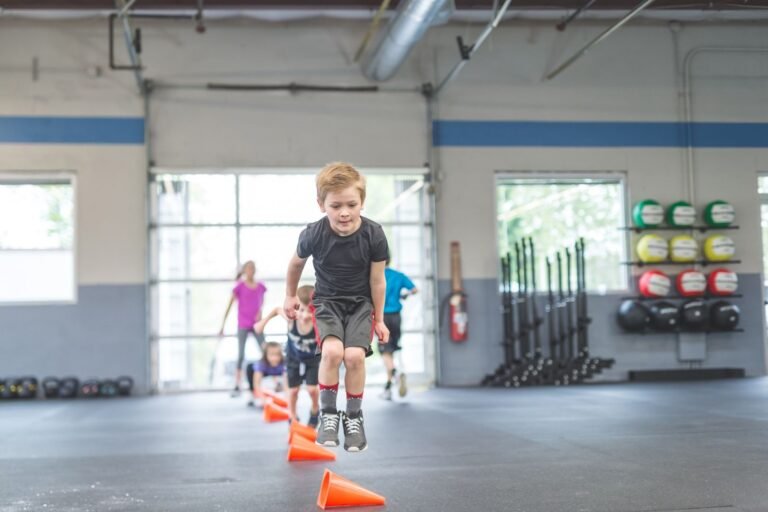Effective support for young athletes can have a big impact on their athletic experience. Here are some tips for parents based on expert advice to assist you guide your child through their athletic adventure.
1. Focus on Emotional and Practical Support
One of the most crucial roles parents may play is to offer emotional and practical support to their young athletes. It is critical to remember that your primary responsibility is to support rather than coach. Supporting your child in sports by going to games with them and showing interest in their hobbies can make their experience a lot better. This makes them feel good about themselves and appreciate their efforts instead of just how well they perform. Your child will grow both on and off the field if you make your home a nice and supportive place to be.
2. Prioritize Fun and Enjoyment
It is very important that your child keeps loving sports. Teens and young adults are more likely to keep playing sports if they enjoy them. To get them to play for fun instead of just to win, teach them to enjoy the game. This approach will help keep your youngster from getting burned out and make them want to be active for a longer time. Your child can build a good relationship with sports if they focus on having fun. This way, they can learn, grow, and have fun all at the same time.
3. Foster a Growth Mindset
Help your child cultivate a growth mindset—that is, perceive obstacles as opportunities for learning and improvement rather than as causes for shame. Praise their hard effort, tenacity, and development rather than merely their wins. This approach helps kids to see that, with hard effort, they can improve at anything. It inspires them to love learning more, which is vital for both sports and in general, a successful life. By putting development ahead of outcomes, you may help your child build the mental toughness to cope with both success and disappointment.
4. Manage Your Expectations
As a parent, it’s crucial to create fair expectations and avoid overly demanding of your child to perform. Every child develops and evolves at their own pace; so, your major objective should be their welfare and health. Having excessively high ambitions could cause burnout and tension, detracting from the enjoyment of sports. Help your kid make goals for themselves and be proud of any achievement, no matter how small. This creates a safe space for your child to reach their full potential without worrying about being let down.
5. Encourage Open Communication
Maintain open and honest conversation with your child regarding their sports experience. Ask them how they feel about their practices and games, and pay attention to their concerns. This communication promotes trust and ensures that your child feels heard and encouraged. Open lines of contact help you to resolve any problems or worries they might have, including conflicts with coaches or fellow players. Staying actively connected will enable you to help your child to negotiate the challenges of being a young athlete.
6. Be a Positive Role Model
Youngsters often look up to their parents as role models. Your child will learn from you respect for others, good sportsmanship, and how to keep a good lifestyle. Urge your kids to honor their opponents, coaches, and teammates in addition to graciously accept both wins and losses. Beside fundamental values, being a good role model helps your child to develop expectations for how they should behave in daily life and in sports.
7. Support a Balanced Lifestyle
Make sure your children have a healthy schedule with time set for school, friends, family, and hobbies besides sports. It is important not to make sure they get time to rest and get recover. A balanced lifestyle keeps them from getting burned out and helps them grow a wide range of skills and interests. Promoting a healthy balance also backs up the idea that sports are just one part of their lives and not the main focus.
8. Promote Healthy Competition
Teach your child the value of healthy competition, which focuses on personal development and teamwork rather than merely winning. Help them understand that competition is an opportunity to push themselves and learn from others. Encourage them to strive for personal excellence while respecting their competition. Healthy competition fosters a healthy sporting environment for children to develop their talents and confidence, without the negative characteristics of rivalry.
9. Be Patient and Supportive
Patience is essential when supporting young athletes. Understand that progress takes time, and that setbacks are a normal part of sports. Provide your support and encouragement throughout both accomplishments and setbacks. Patience and empathy help your child develop resilience and confidence to tackle challenges. Your consistent support will fuel their passion for the sport and drive to improve.
10. Encourage Self-Reflection
Encourage your child to think about what how they performed and what they experienced. Find out what they liked, what they learned, and what they could do better. Young athletes who do this become more self-aware and better at critical thinking. Self-reflection gives them the feel of responsibility for their own growth, which empowers them to take charge of their progress. Furthermore, it helps them set attainable goals and work toward them, but also to determine their strengths and weaknesses.
By adopting these principles into your parenting style, you can provide a supportive and fulfilling environment for your young athlete, allowing them to excel in both sports and life.






